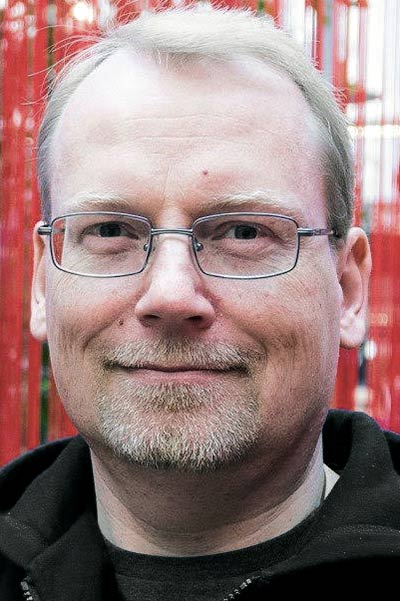

According to an announcement on Monday, the Internet Society has agreed to extend its existing financial commitment to the Internet Engineering Task Force (IETF) for an additional term of six years. more
 Data privacy and security experts tell us that applying the "need to know" principle enhances privacy and security, because it reduces the amount of information potentially disclosed to a service provider -- or to other parties -- to the minimum the service provider requires to perform a service. This principle is at the heart of qname minimization, a technique described in RFC 7816 that has now achieved significant adoption in the DNS. more
Data privacy and security experts tell us that applying the "need to know" principle enhances privacy and security, because it reduces the amount of information potentially disclosed to a service provider -- or to other parties -- to the minimum the service provider requires to perform a service. This principle is at the heart of qname minimization, a technique described in RFC 7816 that has now achieved significant adoption in the DNS. more
RIPE NCC and CENTR have released a statement today in response to the upcoming European Commission's Digital Services Act, urging policymakers to distinguish between the Internet's core infrastructure and operations. more
 Three years ago, the first Internet-Draft on Registry Maintenance Notifications for the Extensible Provisioning Protocol (EPP) was published, which will become a Request for Comments (RFC). The IETF Registration Protocols Extensions (REGEXT) working group is the home of the coordination effort for standards track EPP extensions. They released eight RFCs over the last couple of years, and they are currently working on more than 15 Internet-Drafts. more
Three years ago, the first Internet-Draft on Registry Maintenance Notifications for the Extensible Provisioning Protocol (EPP) was published, which will become a Request for Comments (RFC). The IETF Registration Protocols Extensions (REGEXT) working group is the home of the coordination effort for standards track EPP extensions. They released eight RFCs over the last couple of years, and they are currently working on more than 15 Internet-Drafts. more
 The posting with a similar name seems a bit contrived by anonymous in some strange attempt to enhance its significance. Many others, including myself, have been discussing this subject for some time. Indeed, a concerted lobbying effort and anti-competitive efforts by legacy TCP/IP internet stakeholders have been really ramped up over the past year to mischaracterize what is occurring. more
The posting with a similar name seems a bit contrived by anonymous in some strange attempt to enhance its significance. Many others, including myself, have been discussing this subject for some time. Indeed, a concerted lobbying effort and anti-competitive efforts by legacy TCP/IP internet stakeholders have been really ramped up over the past year to mischaracterize what is occurring. more
In a press conference on Thursday at the University of Chicago, the U.S. Department of Energy (DOE) unveiled a report that lays out a blueprint strategy for the development of a national quantum internet. more
 As we approach four months since the WHO declared COVID-19 to be a pandemic, and with lockdowns and other restrictions continuing in much of the world, it is worth reflecting on how the Internet has coped with the changes in its use, and on what lessons we can learn from these for the future of the network. The people and companies that build and operate the Internet are always planning for more growth in Internet traffic. more
As we approach four months since the WHO declared COVID-19 to be a pandemic, and with lockdowns and other restrictions continuing in much of the world, it is worth reflecting on how the Internet has coped with the changes in its use, and on what lessons we can learn from these for the future of the network. The people and companies that build and operate the Internet are always planning for more growth in Internet traffic. more
 How are new technologies adopted in the Internet? What drives adoption? What impedes adoption? These were the questions posed at a panel session at the recent EuroDiG workshop in June. In many ways, this is an uncomfortable question for the Internet, given the Internet's uncontrolled runaway success in its first two decades. The IPv4 Internet was deployed about as quickly as capital, expertise, and resources could be bought to bear on the problem... more
How are new technologies adopted in the Internet? What drives adoption? What impedes adoption? These were the questions posed at a panel session at the recent EuroDiG workshop in June. In many ways, this is an uncomfortable question for the Internet, given the Internet's uncontrolled runaway success in its first two decades. The IPv4 Internet was deployed about as quickly as capital, expertise, and resources could be bought to bear on the problem... more
 A "New IP" framework was proposed to the ITU last year. This framework envisages a resurgence of a network-centric view of communications architectures where network-managed control mechanisms moderate application behaviors. It's not the first time that we've seen proposals to rethink the underlying architecture of the Internet's technology (for example, there were the "Clean Slate" efforts in the US research community a decade or so ago) and it certainly won't be the last. more
A "New IP" framework was proposed to the ITU last year. This framework envisages a resurgence of a network-centric view of communications architectures where network-managed control mechanisms moderate application behaviors. It's not the first time that we've seen proposals to rethink the underlying architecture of the Internet's technology (for example, there were the "Clean Slate" efforts in the US research community a decade or so ago) and it certainly won't be the last. more
 Reading up on COVID-19 and Zoom/Boris Johnson outcry yesterday, an analogy struck me between the two: the lack of testing. In both cases, to truly know how safe and secure we are, testing needs to be stepped up considerably. This post focuses on cybersecurity. Over the past days and weeks, more and more organisations have switched to digital products and services to sustain working from home, to keep productivity up and to be connected. more
Reading up on COVID-19 and Zoom/Boris Johnson outcry yesterday, an analogy struck me between the two: the lack of testing. In both cases, to truly know how safe and secure we are, testing needs to be stepped up considerably. This post focuses on cybersecurity. Over the past days and weeks, more and more organisations have switched to digital products and services to sustain working from home, to keep productivity up and to be connected. more
The last few weeks have reinforced the importance of modern communication networks to societies. Health care providers, schools, governments, and businesses all rely on networks that enable us to connect and collaborate remotely. Had we encountered a similar pandemic ten years ago, we would not have been able to continue our activities on the level that is possible today. more
 The Great Renaming was a significant event in Usenet history since it involved issues of technology, money, and governance. From a personal perspective -- and remember that this series of blog posts is purely my recollections – it also marked the end of my "official" involvement in "running" Usenet. I put "running" in quotation marks in the previous sentence because of the difficulty of actually controlling a non-hierarchical, distributed system with no built-in, authenticated control mechanisms. more
The Great Renaming was a significant event in Usenet history since it involved issues of technology, money, and governance. From a personal perspective -- and remember that this series of blog posts is purely my recollections – it also marked the end of my "official" involvement in "running" Usenet. I put "running" in quotation marks in the previous sentence because of the difficulty of actually controlling a non-hierarchical, distributed system with no built-in, authenticated control mechanisms. more
 For quite a while, it looked like my prediction – one to two articles per day – was overly optimistic. By summer, there were only four new sites: Reed College, University of Oklahoma (at least, I think that that's what uucp node uok is), vax135, another Bell Labs machine – and, cruciallyy, U.C. Berkeley, which had a uucp connection to Bell Labs Research and was on the ARPANET. more
For quite a while, it looked like my prediction – one to two articles per day – was overly optimistic. By summer, there were only four new sites: Reed College, University of Oklahoma (at least, I think that that's what uucp node uok is), vax135, another Bell Labs machine – and, cruciallyy, U.C. Berkeley, which had a uucp connection to Bell Labs Research and was on the ARPANET. more
 Our goal was to announce Usenet at the January, 1980 Usenix meeting. In those days, Usenix met at universities; it was a small, comaparatively informal organization, and didn't require hotel meeting rooms and the like. (I don't know just when Usenix started being a formal academic-style conference; I do know that it was no later than 1984, since I was on the program committee that year for what would later be called the Annual Technical Conference.) more
Our goal was to announce Usenet at the January, 1980 Usenix meeting. In those days, Usenix met at universities; it was a small, comaparatively informal organization, and didn't require hotel meeting rooms and the like. (I don't know just when Usenix started being a formal academic-style conference; I do know that it was no later than 1984, since I was on the program committee that year for what would later be called the Annual Technical Conference.) more
 We knew that Usenet needed some sort of management system, and we knew that that would require some sort of authentication, for users, sites, and perhaps posts. We didn't add any, though -- and why we didn't is an interesting story. The obvious solution was something involving public key cryptography, which we (the original developers of the protocol: Tom Truscott, the late Jim Ellis, and myself) knew about: all good geeks at the time had seen Martin Gardner's "Mathematical Games" column... more
We knew that Usenet needed some sort of management system, and we knew that that would require some sort of authentication, for users, sites, and perhaps posts. We didn't add any, though -- and why we didn't is an interesting story. The obvious solution was something involving public key cryptography, which we (the original developers of the protocol: Tom Truscott, the late Jim Ellis, and myself) knew about: all good geeks at the time had seen Martin Gardner's "Mathematical Games" column... more